ماجستير العلوم في هندسة الطاقة المتجددة
نظرة عامة عن البرنامج
حيث أن الطاقة المتجددة أصبحت ركيزة من الركائز الأساسية في رؤية المملكة العربية السعودية 2030 فأنه قد تم إستحداث برنامج ماجستير العلوم في هندسة الطاقة المتجددة بجامعة الباحة في عام 2021. وهو برنامج مشترك بين قسمي الهندسة الكهربائية والهندسة الميكانيكية بالجامعة ويأتي منسجما مع توجه الجامعة بالعمل على تحسين مستوى انتاج البحث العلمي وتوفير الباحثين المبدعين والمساهمة في إيجاد حلول تقنية لمشاكل المجتمع.
إنّ الاهداف الرئيسية لهذا البرنامج هو توفير المعرفة المتعمقة والمهارات اللازمة لتقديم تعليم متميز في مجالات تقنيات الطاقة المتجددة مثل تقنية الطاقة الشمسية وتقنية طاقة الرياح وتقنية طاقة الهيدروجين وغيرها من التقنيات الحديثة ، وكذلك المساهمة في تلبية حاجة المملكة للمتخصصين في مجال هندسة الطاقة المتجددة.
برنامج ماجستير العلوم في هندسة الطاقة المتجددة يمكن الطلاب من حل المشاكل العصرية في مجال الطاقة المتجددة من خلال تطبيق المفاهيم الهندسية المتخصصة والرياضيات والعلوم ومن ثم مراجعة وتحليل وتفسير المنشورات العلمية والمواضيع والإبتكارات المعاصرة في هذا المجال. وقد تم تصميم البرنامج لتلبية احتياجات سوق العمل المحلي والإقليمي، مع الإلتزام بالإطار الوطني للمؤهلات (NQF) ومعايير المركز الوطني للتقويم والإعتماد الأكاديمي (NCAAA).
رؤية ورسالة وأهداف البرنامج
الرؤية:
أن يكون برنامجاً أكاديمياً وبحثياً في هندسة الطاقة المتجددة على المستويين المحلي والدولي ويدعم التنمية المستدامة ويخدم رؤية المملكة المستقبلية.
الرسالة:
تقديم تعليم عالي الجودة في مجال أنظمة الطاقة المتجددة وبحوث مستقبلية في مجال إستخدامات الطاقة المتجددة بما يمكن من المنافسة في سوق العمل وإجراء البحوث المبتكرة وخدمة المجتمع.
الأهداف:
(1) تعزيز جودة وكفاءة التعليم والتعلم لتزويد طلاب الدراسات العليا بالنظريات والمهارات العلمية والتصميم والتنفيذ في مجال هندسة الطاقة المتجددة.
(2) إعداد خريجين مؤهلين لتطوير إهتماماتهم المهنية والعلمية، من خلال دراسة معمقة لمعالجة مشاكل البحث المفتوحة في مجال الطاقة المتجددة وتطبيق المعرفة المكتسبة في الصناعة.
(3) تعزيز الشراكة المجتمعية في مجالات الطاقة المتجددة.
(4) التطوير المهني من خلال التعلم الذاتي وتحقيق الأهلية في حالة الطامحين الذين يسعون إلى تعزيز تعليمهم ومهاراتهم للحصول على الدرجة الأكاديمية المتقدمة "الدكتوراه".
مخرجات تعلم البرنامج
المعرفة والفهم
(1) تذكر المعرفة في الرياضيات والعلوم بطريقة خلاقة لتطوير وتقديم منتجات وخدمات مفيدة للمجتمع.
(2) وصف الأساليب والعمليات الهندسية المستخدمة في تحليل وتصميم أنظمة الطاقة المتجددة.
(3) إدراك معرفة المفاهيم والأفكار والنظريات في هندسة الطاقة المتجددة.
المهارات
(1) حل المشاكل العصرية في مجال الطاقة المتجددة من خلال تطبيق المفاهيم الهندسية المتخصصة والرياضيات والعلوم.
(2) مراجعة وتحليل وتفسير المنشورات العلمية والمواضيع والإبتكارات المعاصرة في مجال الطاقة المتجددة.
(3) تطبيق المعرفة بالمفاهيم والتصاميم الهندسية المتخصصة لإنتاج حلول تلبي إحتياجات محددة وفهم تأثير الحلول الهندسية في سياق شامل ومجتمعي.
(4) التحقق من صحة الإبتكارات والإكتشافات في المعامل أو في الحياة العملية بطرق فعالة ومؤثرة بإستخدام وسائل هندسية حديثة.
(5) إستخدام مصادر الحاسوب مثل أجهزة الكمبيوتر والتقنيات الرقمية وتكنولوجيا المعلومات لدعم الأبحاث المتخصصة والمشاريع وكتابة وتقديم نتائج الأبحاث بشكل فعال في المجلات والمؤتمرات العلمية الدولية وبراءات الإختراع.
القيم والإستقلالية والمسؤولية
(1) تحقيق أهداف مشتركة ضمن فريق عمل جماعي والقدرة على شغل مناصب قيادية.
(2) إكتساب المعارف الجديدة بإستخدام إستراتيجيات التعلم المناسبة لإجراء وإنتاج أبحاث متطورة في مجال الطاقة المتجددة.
(3) إجراء وإنتاج أبحاث نوعية في مجال هندسة الطاقة المتجددة، وفهم المسؤوليات المهنية والأخلاقية.
خصائص خريجي البرنامج
(1) التفكير النقدي وتقييم المفاهيم: القدرة على التفكير النقدي، ودمج المفاهيم والممارسات، وتكوين الآراء بعناية.
(2) تعليم ذاتي مستمر: القدرة على إكتساب المعرفة الجديدة بشكل مستمر.
(3) مهارات التواصل والسلوكيات المهنية والتعاون والعمل الجماعي: القدرة على التواصل بشكل فعال مع الآخرين، ونقل الأفكار والمفاهيم، وأداء السلوكيات المهنية في أجواء فريق عمل.
(4) مهارات التخطيط والتنظيم: القدرة على وضع الخطط والإستراتيجيات وتقديم المبادرات في ظروف محيطة معينة.
(5) الكفاءة في حل المشكلات الهندسية: القدرة على حل المشاكل الهندسية باستخدام المبادئ العلمية والأدوات والممارسات.
(6) التحليل والتفسير: القدرة على تحليل وتفسير البيانات والمعلومات.
الملفات والادلة
الخطة الدراسية لبرنامج ماجستير العلوم في الطاقة المتجددة.
مهام المجلس الاستشاري لبرنامج ماجستير العلوم في الطاقة المتجددة.
كتيب معلومات لبرنامج ماجستير العلوم في الطاقة المتجددة.
دليل القبول لبرنامج ماجستير العلوم في الطاقة المتجددة.
رؤية ورسالة وأهداف برنامج ماجستير العلوم في الطاقة المتجددة .
مخرجات تعلم برنامج ماجستير العلوم في الطاقة المتجددة
النادي الطلابي بكلية الهندسة.
دليل برنامج ماجستير العلوم في الطاقة المتجددة.
دليل قسم الهندسة الكهربائية.
مهام ومسؤوليات فني المعامل بقسم الهندسة الكهربائية.
قائمة الأدلة واللوائح التي يحتاجها الطالب في قسم الهندسة الكهربائية.
نموذج تقييم الأداء الوظيفي لأعضاء هيئة التدريس.
نموذج تقييم الآداء الوظيفي لرؤساء الأقسام.
نموذج تقييم شاغلي الوظائف الإدارية.



